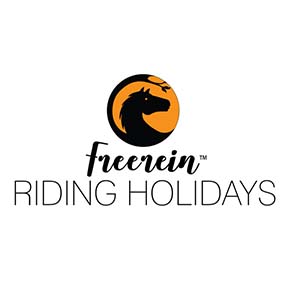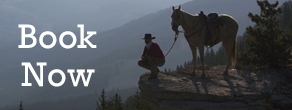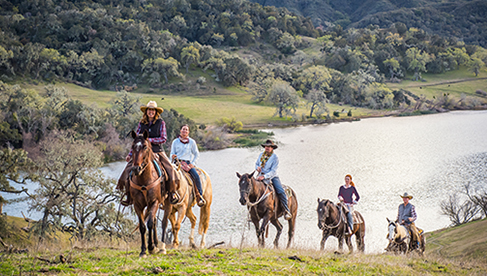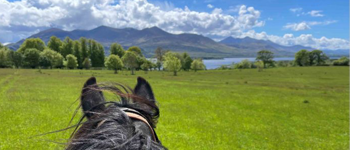Horsey Homecoming: Where to Keep Your New Horse
From boarding stables to your own horse property, after spending over 50 years of my life with horses, my tips for what to consider when deciding where to keep your horse.
by Karen Prell
If you’ve read my previous Expert Equestrian Articles here on Equitrekking.com, then you know that actually finding and getting your horse is only the beginning of your adventure. Finding just the right place to keep your horse is the next step.
Having spent the better part of 50 plus years of my life with horses, I can tell you that there are many options for finding a place to keep your horse. You can live anywhere from a large metropolitan suburb to your own place out in the country, but there are some common factors that will guide your decision and keep your horse happy and you sane.

Finding a Place to Board Your Horse
As with buying a horse, finding a great place to board can take some work and again the networking thing comes into play.
From New Jersey to Florida, I have boarded my horses every place from commercial barns to a backyard set up. Each has its pluses and minuses; it just depends on what stage you find yourself in life and what you are not willing to compromise on with regards the comfort and safety of your new equine soul mate. The type of social environment that would make you happy is also a factor. Make no mistake about it, you will, hopefully, be spending lots of time with your horse, so you want it to be a pleasant environment that you can enjoy as well.
List your "must haves" for a happy barn environment
Make a list of the things you want in your barn environment on which you will absolutely not compromise.
This could be something as basic as needing a turnout / pasture area for your horse that is separate from other horses. I have been to barns where all of the horses are turned out together in one big pasture. This is not a bad way to have regular turnout for your horse, but if you are going to be showing on a regular basis, you may not want to deal with the potential injuries that can result from a “new kid” being introduced to an established herd.
There are also your safety issues. If you are less than confident walking into a field with a herd of horses you do not know, then this is not a good option for you. Nothing can be scarier to someone new to this than to suddenly be surrounded by a “gang” of nosey horses who just happen to be hunting you for any snacks you might have on board. It makes for a humorous mental image, but the potential for injury inherent in such a situation is anything but funny. And if you own a timid type of horse, he/she could end up on the bottom of the pecking list which can often make for some pretty significant injuries if the “horse play” gets out of hand.
Since I have always owned a stallion, the group herd thing was never an option for me. That is unless the mare owners involved wanted their mares bred!
Another item in which there can be no compromise is good solid fencing. Without trying to sound like a certain 1940’s movie queen, let me say this about fencing... NO BARBED WIRE FENCES EVER! Barbed wire and horses are never a good mix. If you’ve ever seen the horrendous damage that can be done to a horse by tangling with barbed wire, you know what a horror it is.

The barbed wire question would never enter into the equation with a commercial barn. It’s just not good business sense. It might be a question if you choose to board with someone in a backyard type situation. I have gone to look at prospective places to board and seen barbed wire as part of the fencing. When I asked about it, invariably I was told it was old and that they were getting ready to replace it. At that point in the conversation, I usually tell the owners to let me know when it’s replaced and I’ll come back and look.
Another item to look for is how many people already board at the place you are considering. Aside from the safety in numbers factor, having a group of like minded riders around can only increase your knowledge. You can learn from the horse owners around you what you may or may not want to add to your personal arsenal of horsey knowledge. Do not automatically discount the backyard type set up, as they could have enough acreage to allow for more boarders. It just depends on the zoning laws in your area. But from a safety standpoint, having others around to ride with or just be there while you ride could potentially save someone’s life in the event of an accident or medical emergency.
One of the barns where I boarded my horse in New Jersey for many years was part of a county park and adjacent to extensive trails in the Ramapo Mountains. It was as close to trail ride heaven as you are likely to get in a large metro area like Bergen County, NJ where I lived at the time.
I could quite literally walk out of my stalls and ride off into the mountains. And I could do this year round, as the snow just made it lovelier! This particular barn also had two large riding arenas, a round pen and lots of friends with whom to ride. It was a mix of English and Western riders with a few Endurance and Driving enthusiasts thrown into the mix. It made for great conversations, good riding companions and knowledge shared amongst everyone.
The barn Christmas parties here were the stuff of legends, with everyone bringing something to eat and presents for all that were appropriate. The downside to this is it can be expensive due to the shortage of barns in an area such as mine at the time and the amenities. But if you only have one horse, in my opinion it is well worth it for the amenities and camaraderie of such a set up and the chance to gain knowledge from a diverse group of horse folk.

In the area where I live in Florida, there is more open land than back home in New Jersey, so there are more backyard type operations and a few professional barns. Most are somewhere in between the two. This brings up another item that should be on your list to consider... security.
In a backyard type situation, you generally have the owner also living on the premises, so there is a physical presence on a daily basis. Consider whether it the type of place where strangers can come and go without question. Is there a single entrance gate and is it secured? With horse theft always a possibility you need to be hypervigilant about your new baby to ensure that no unauthorized person has easy access to him. Be observant! If there are no secured entry gates or better yet barn dogs that make noise around strangers, then you might want to pass the place by. This goes for pro barns as well as the backyard situation. Having the prettiest facility in the state doesn’t do much good if anyone can just walk on the property without question and gain access to the horses.
I have had personal experience with someone trying to steal my horse, but I was lucky. I got mine back. He was a young stallion who was suspicious of strangers and didn’t particularly like men at all. While waiting for a stall to come open in the show barn of my choice, some individuals strolled into the barn where I was boarding, came in the back way at night and opened the first two stalls they found in the back of the barn.
Fortunately for me, my horse spooked when they tried to take him and he took off running through the woods in suburban New Jersey. I got a call early in the morning that something had happened to my horse and I better get there. Trust me when I tell you it was the longest 30 minute ride of my life! The local police found my baby not far away munching on someone’s lawn in a nearby housing development. He had been running all night apparently over pavement and other hard surfaces. Did I mention he was barefoot? I got him back, but he was so foot sore he didn’t know which foot to put where. I called the barn whose waiting list I was on and explained that I did not want to spend another day in my existing barn. I also explained what had happened. They never hesitated and said to bring him that day that they would juggle their own horses around and make room for us. I boarded with them for 12 very happy years.
Here in Florida, since 1988 I’ve been at both professional barns and backyard / owner set ups. Both have worked at the time I needed them, but on the whole I do have a preference for the well-run barn and a decent riding arena, so more often than not the commercial barns have worked out better for me.
Visit barns yourself and keep an open mind
Another thing you must do is always go and see the place yourself and meet the principals involved! No matter what someone might tell you about the farm or the owners, it could be colored by their opinions and experience. It’s best to meet the folks involved and actually see for yourself. We all get feelings about people on a subconscious level over and above what we see in the physical. Trust your instincts! The nicest looking places and the most charming people can also hide some not so nice things.
One of the best places I boarded was with someone who I was warned that I wouldn’t get along with. I knew of this woman, as we both traveled in separate but horsey circles. She is a Quarter Horse breeder and did a lot of showing at National level. Apparently everyone I spoke to about her told me she was gruff, opinionated and did not like my breed of choice--Arabians! I was told she would never rent me stalls. Concurrently, this person knew of me and was told I was very picky about how my horses were kept, etc. Both of us received prior warnings about the other long before we met.
When I finally met Brenda Johnson of the YKNOT Ranch, it was like meeting an old friend I didn’t know I had! Something just clicked. While her place wasn’t fancy, it was clean and workmanlike and her horses were fat and happy. She introduced me to her stallion, Mollys Pardner, a beautiful, buckskin Quarter Horse who immediately impressed me with his kind disposition. Standing in his pasture, covered in dust from rolling, I then found out that he was also the sire of numerous World and Reserve World Champions. This incident taught me never to judge a book by it’s cover and don’t always believe what others tell you!

In getting to know Brenda, I discovered that what some people called gruff I found to be no nonsense and efficient. Everything she did in her barn was for the best interest of her horses while keeping her costs down. She had good reason for this, as while she was running a very successful business she was also a single mom, raising her young daughter herself.
As to the rumor that she did not like Arabians, that also turned out not to be true. It became one of our regular routines that on the nights I was at the barn after work and all the horsey chores were done, we would take our refreshments and just sit on the golf cart in the barn aisle way and listen to the horses munching their dinners. Despite it being an absolute hub of equine related business between the buying, selling and breeding, it was one of the most tranquil places to be after a day at the office! Had she not sold the place and moved farther away from me, I would still be with her! So when it comes to rumors and what other people think of someplace you’re considering, go see it for yourself and meet the people involved. Only you know what you want, need and like when it comes to where you want to end up.
The one backyard place where I boarded had a written boarding agreement that was four pages long and written in terms that basically gave the impression that they expected to have trouble with you. Oh and the agreement was not even mentioned before I moved my horse into their barn. I can tell you that I wasn’t there for long. Sometimes you do have people who for whatever reason think that a long contract will keep people on the straight and narrow. Sorry to say, but it’s been my experience in over 30 yrs of boarding my horses out, that if someone wants to behave dishonorably, no contract in the world is going to stop them and chances are it won’t do the other party any good either.
Consider keeping your horses at home
If you are lucky enough to have your own little piece of the Ponderosa and your zoning allows agricultural uses, then you can consider keeping your own horse on your own property. Be warned, it is not one big vacation. In fact, you can probably forget being able to spontaneously pick up and just go for a vacation, whether it is for a long weekend or a week. Someone needs to take care of your horse whether you are home or not. It’s not like a dog, there is no great wealth of places to take horses on a short term basis and would you really want to leave your baby someplace strange?
Unless your world (and your family's world) revolves around horses, having horses on your own property brings with it its own risks and rewards and should be carefully considered before you jump into it. You may think you’ll save money, but unless you own such a set up already, you need good to acquire fencing, a barn or other shelter, riding area, area for manure disposal, etc. And this is at the bare minimum. If you want or need jumps, or any other specialized items for you particular riding discipline, you will be the one to supply and maintain it.
Just as there are all types of place to keep your horse, there are all kinds of ways to customize your boarding experience to fit your pocketbook. At the bottom range of expenses, if all you want is a pasture with a basic shelter to get your horse out of the elements, then you are looking for something called “rough” board. This means you supply all feed and hay and do your own feeding a minimum of twice a day and cleaning of outside shelter or stall. The plus to this type of board is you do spend less, but you will work more. So, if you have a job or lifestyle that precludes you being this involved in the daily upkeep and care for your new partner, then full board might be for you.
Full board for your horse
Full board is at the other end of the spending spectrum. In this type of boarding, generally you would have a stall, access to pasture and the facility would be responsible for feeding and cleaning stalls. Some facilities include turning your horse out daily for you and others charge extra for that service, so make sure you ask!
Prices for these services range all over the map, depending on what part of the country you live in and what is available. Here in my area of Florida, rough board is usually in the range of $150 per month per horse with full board coming in around $350 monthly. You can see there is a wide difference in costs, so this is definitely something you want to do your homework on as soon as you decide you are going to take the plunge into horse ownership.
The bottom line is to do your homework and use your network of friends, fellow riders, instructors and know exactly what it is you want and need to keep yourself and your new horse happy, healthy and safe! Happy Riding!
About the Author: Karen Prell, aka "Triple Crown Karen," came from a very non-horsey, working class New Jersey family and started riding at age three. With over 30 years experience as a riding instructor, Karen is passionate about developing beginners into confident riders and compassionate horse owners. A favorite expression heard often by her students is "It's ALL about the horse!" A lover of all things "horse," she is especially passionate about promoting the retraining of retired Thoroughbreds and adoption and rehoming of unwanted horses. Her ultimate dream would be to see the US Equestrian Team mounted on these great reclaimed athletes. Her career in media focuses on the everyday equestrian adventure and how a horse lover of modest means CAN make a difference for even ONE horse.




